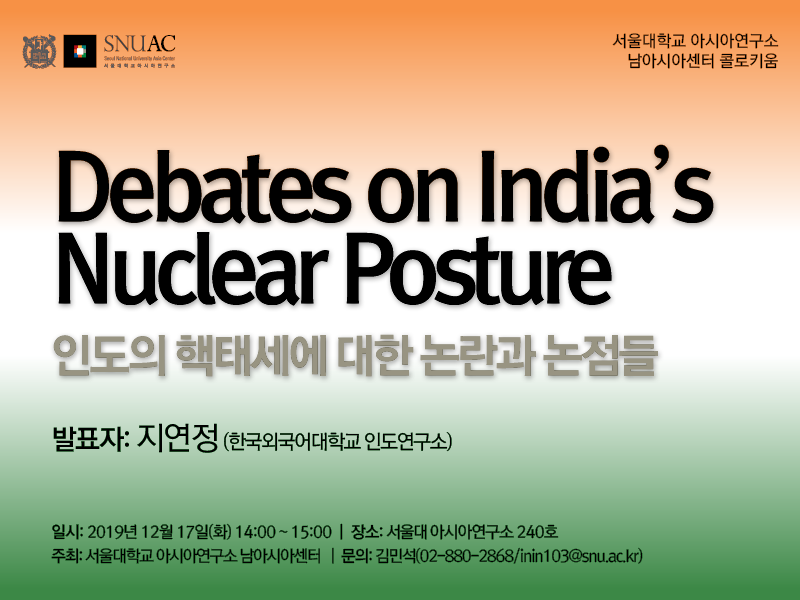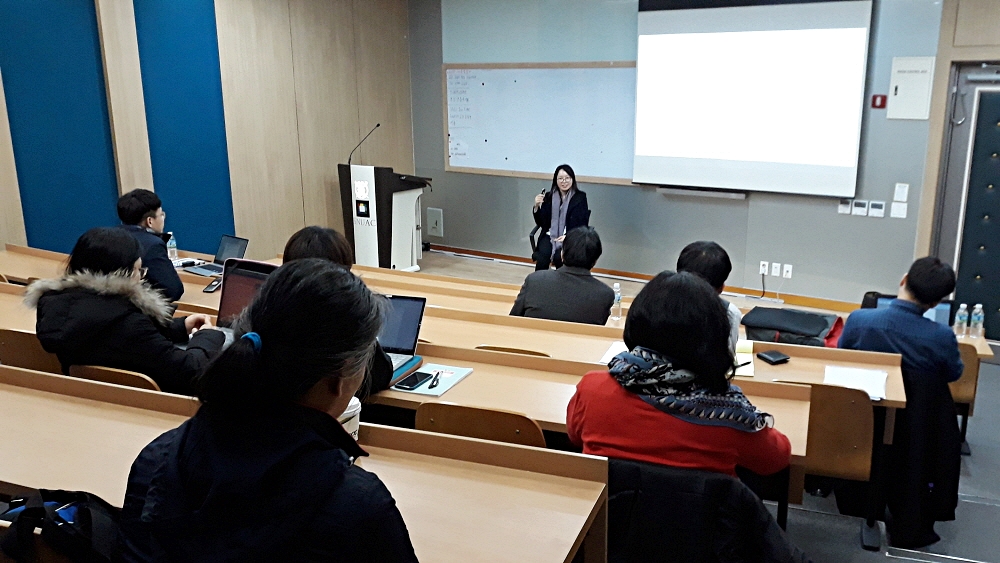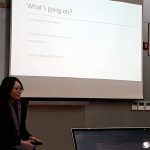
Debates on India’s Nuclear Posture
- Date: December 17th, Tuesday, 2019 14:00-15:00
- Location: Room 240, SNUAC (Bldg. 101)
India’s nuclear doctrine is one of the major indices that suggest the direction of India’s nuclear policy. India is currently maintaining its basis on credible minimum deterrence, no-first-use, massive retaliation with the nuclear doctrine, adopted in 2003, in its core, but the potential for its change cannot be excluded, based on the various opinions of the present and former governmental policymakers. Therefore this lecture discusses diverse perspectives on the characteristics and changeabilities of India’s nuclear doctrine, and their implications on the military competitions in South Asia.
* The presentation will be in English, and debate in Korean.
Dr. Yeon-Jung Ji has worked at New Delhi’s Centre for Air Power Studies, served as a post-doctoral scholar at Harvard’s Belfer Center as a Stanton Nuclear Security Fellow, and currently works as a visiting fellow at the Institute of Indian Studies, Hankuk University of Foreign Studies.
On December 17th, South Asia Center held a colloquium with Dr. Yeon-Jung Ji, a visiting fellow at the Institute of Indian Studies, Hankuk University of Foreign Studies. Dr. Ji is an expert on diplomacy and the military of India who has been researching in New Delhi and at Harvard Belfer Center in Boston, U.S.A.
In the case of India, the confusion right after the independence was not as serious as it was for Korea, and the state actively brought in elites studying abroad and encouraged the development of nuclear physics and arms. Though it is true that the atmosphere on nuclear arms had changed slightly depending on the prime minister in office, the nuclear experiments had started full-fledged since 1998 and suddenly announced to be stopped in 1999, and India’s nuclear doctrine appears vague even with its principles of no preemptive attack and revenge only. The tensions and opposition between India and Pakistan have existed since long ago and have not been ameliorated through either nuclear confrontation or the doctrine. As the political situation becomes complex, opinions vary on to which extent the principles of the doctrine must be abided by. While repulsion exists for nuclear weapons in a culture where ahimsa is emphasized as a social virtue, discussion and research on the nuclear postures of India and surrounding countries appear relevant at this point when their military/diplomatic opponent is not limited to Pakistan but extends to China as well.





